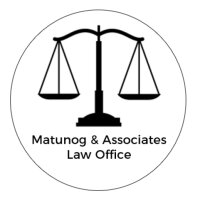Best Legal Document Lawyers in Davao City
Share your needs with us, get contacted by law firms.
Free. Takes 2 min.
List of the best lawyers in Davao City, Philippines
Philippines Legal Document Legal Questions answered by Lawyers
Browse our 10 legal questions about Legal Document in Philippines and read the lawyer answers, or ask your own questions for free.
- Correction of Surname on PSA
- The name of the father registered on my birth certificate was that of my mother's legal husband at the time of my birth, and I haven't used the surname of the said registered father ever. All of my legal documents use the surname of my biological father. Now, I wanted... Read more →
-
Lawyer answer by Recososa Law Firm
Hello:Presuming this case is within the Philippine jurisdiction, your situation involves what is known in law as a case of “filiation and legitimacy.” Under the Family Code, a child born during a valid marriage is presumed legitimate, which is why...
Read full answer - Patent Land Title
- Mother pa yung Tax declaration kahit may dalawang patent title na kase nakaligtaan iparala sa RD. yung isang anak na may patent title binenta sa po pero wala naman pong record sa RD. ano po kaya mas magandang gawin para maitala sa RD yung patent title nung 2011 pa.
-
Lawyer answer by NARAG LAW OFFICE
Second step kasi ang RD so need nyo lang gather Ng documents from the government agencies and ask for an assistance of a lawyer.
Read full answer - Can I buy a house from a seller with no deed
- The seller built a house and only has a bill of sale no deed. I want to buy the house from her. Can I buy it and have the deed made out in my name
-
About Legal Document Law in Davao City, Philippines
Legal Document refers to any written instrument that plays a vital role in legal matters. In Davao City, Philippines, the law governing legal documents is primarily based on the Civil Code of the Philippines, which outlines the rules and procedures related to various legal documents.
Why You May Need a Lawyer
There are several situations where seeking the assistance of a lawyer specializing in Legal Document in Davao City can be beneficial. Some common scenarios include:
1. Drafting or reviewing contracts and agreements: Lawyers can help ensure that the legal documents you create or sign are well-drafted and protect your rights and interests.
2. Real estate transactions: When buying or selling property, a lawyer can guide you through the process, review the necessary documents, and ensure a smooth transfer of ownership.
3. Business registrations: If you are starting a business in Davao City, a lawyer can help you with the required legal documents, permits, and registrations.
4. Managing estates and wills: Legal Document lawyers can assist in creating and managing wills, trusts, and other estate planning documents, ensuring your assets are distributed according to your wishes.
5. Resolving disputes: In case of legal conflicts or disputes, a lawyer can represent your interests and help navigate the legal system.
Local Laws Overview
Key aspects of local laws related to Legal Document in Davao City, Philippines include:
- Civil Code of the Philippines: This code governs various legal documents, such as contracts, donations, wills, and obligations.
- Notarial Law: The law outlines the rules and procedures for making documents public through notarization, ensuring their legality and authenticity.
- Land Registration Act: This act deals with the registration of land and real estate transactions, protecting the rights and interests of property owners.
Frequently Asked Questions
1. What is the process for notarizing a legal document in Davao City?
In Davao City, to notarize a legal document, you need to present it to a notary public, who will review and verify its contents. After ensuring its accuracy, the notary public will affix their seal and signature, making the document legally binding.
2. Are handwritten agreements considered legally valid in Davao City?
Handwritten agreements, also known as "private documents," are generally considered legally valid in Davao City. However, it is advisable to consult with a lawyer to ensure the validity and enforceability of such agreements.
3. How long does it take to register a property in Davao City?
The time required to register a property in Davao City can vary depending on several factors, such as the completeness of the documents and the workload of the relevant government office. However, it usually takes several weeks or months to complete the registration process.
4. What is the importance of notarizing a document?
Notarizing a document adds a layer of authentication and credibility to it. It provides proof that the document was signed voluntarily, the signatories are correctly identified, and all necessary legal formalities have been observed.
5. Is it possible to contest a will in Davao City?
Yes, it is possible to contest a will in Davao City under certain circumstances. If you believe that the will is invalid due to fraud, undue influence, lack of testamentary capacity, or any other legal grounds, you can seek legal assistance to contest it through the appropriate court.
Additional Resources
For individuals seeking legal advice and assistance regarding Legal Document in Davao City, the following resources may be helpful:
- Integrated Bar of the Philippines (IBP) Davao City Chapter: The local chapter of this organization can provide a list of lawyers specializing in Legal Document.
- Department of Justice - Davao City: Their website contains valuable information and resources related to legal matters in Davao City.
- Regional Trial Court - Davao City: The court's website provides access to legal resources, forms, and contact information for seeking legal assistance.
Next Steps
If you require legal assistance or advice regarding Legal Document in Davao City, Philippines, it is recommended to take the following steps:
1. Identify your specific legal needs and the type of legal document you require assistance with.
2. Compile all relevant documentation and information related to your case or query.
3. Research and shortlist lawyers or legal firms specializing in Legal Document in Davao City based on their experience and expertise.
4. Schedule a consultation with a lawyer to discuss your legal concerns and explore possible solutions.
5. During the consultation, ask any questions you may have to clarify your understanding of the legal process and potential outcomes.
6. Based on the consultation, assess the lawyer's suitability and expertise for your specific case.
7. If you decide to proceed, engage the services of the chosen lawyer and follow their guidance throughout the legal process.
Remember, this guide provides general information and it is always advisable to consult with a lawyer for personalized advice based on your specific situation.
Lawzana helps you find the best lawyers and law firms in Davao City through a curated and pre-screened list of qualified legal professionals. Our platform offers rankings and detailed profiles of attorneys and law firms, allowing you to compare based on practice areas, including Legal Document, experience, and client feedback.
Each profile includes a description of the firm's areas of practice, client reviews, team members and partners, year of establishment, spoken languages, office locations, contact information, social media presence, and any published articles or resources. Most firms on our platform speak English and are experienced in both local and international legal matters.
Get a quote from top-rated law firms in Davao City, Philippines — quickly, securely, and without unnecessary hassle.
Disclaimer:
The information provided on this page is for general informational purposes only and does not constitute legal advice. While we strive to ensure the accuracy and relevance of the content, legal information may change over time, and interpretations of the law can vary. You should always consult with a qualified legal professional for advice specific to your situation.
We disclaim all liability for actions taken or not taken based on the content of this page. If you believe any information is incorrect or outdated, please contact us, and we will review and update it where appropriate.












